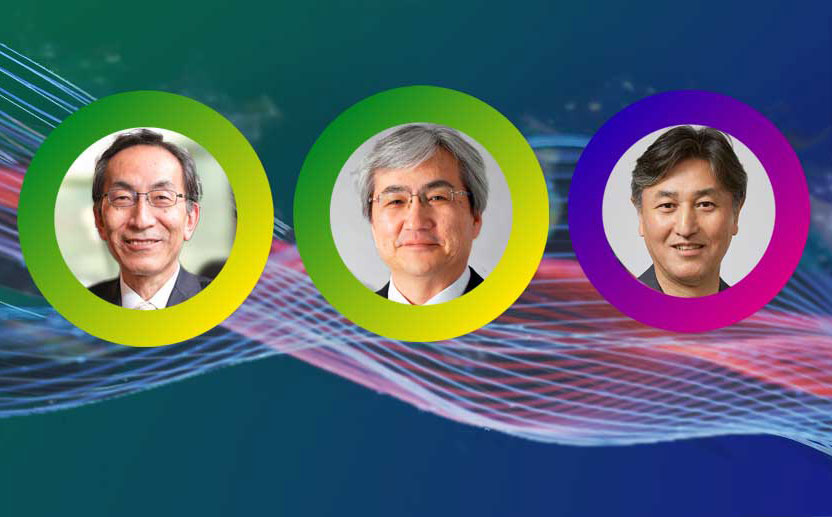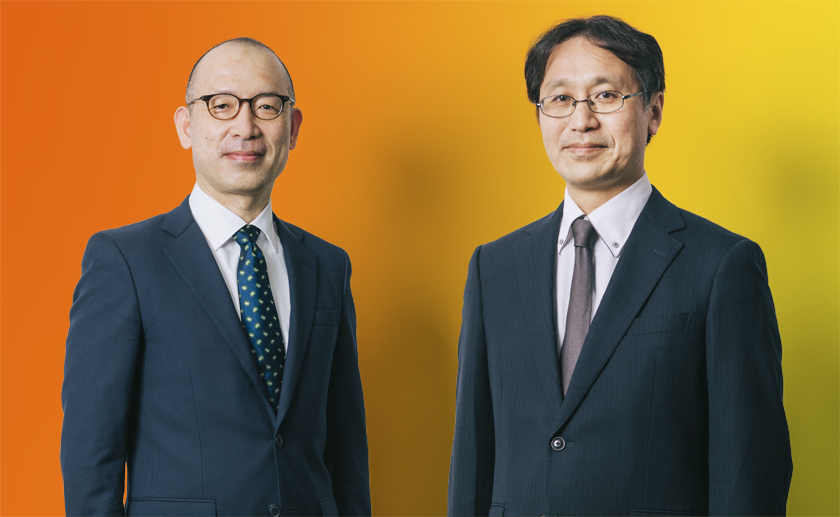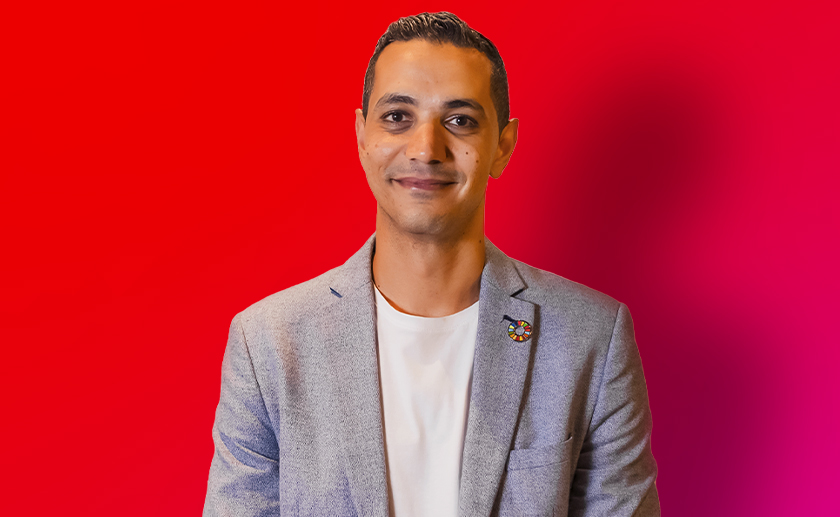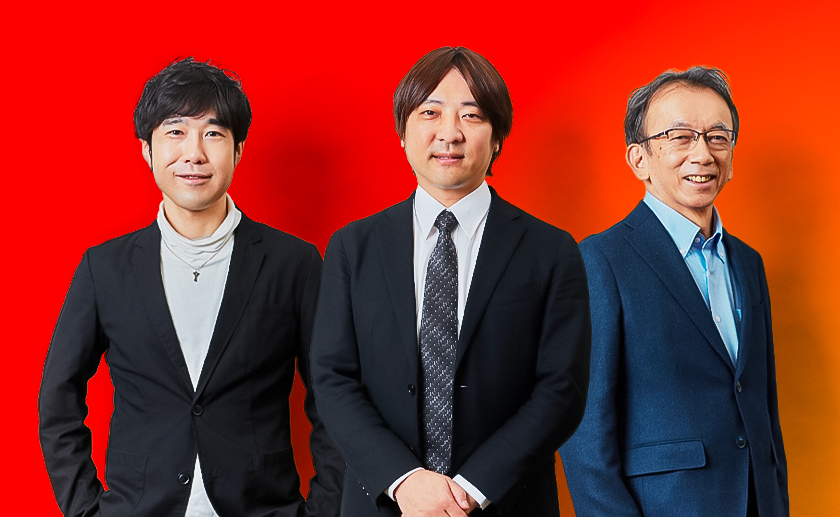
Contents
- AI-driven cancer research
- Fujitsu’s AI enabling the world’s leading experts in cancer research
- Explainable AI and drastically reduced computation time: a powerful combination
- Aiming for solutions to social problems involving large-scale networks
Today, it’s not uncommon for someone to reach 100 years of age and, as a result, there is a growing interest in maintaining a healthy mind and body later into life. Achieving this goal will require a number of medical advances, including making inroads into the treatment of cancer, which is the second leading cause of death in the world*. While there is still no clear cure for cancer, there is hope on the way in the form of new research. For example, the supercomputer Fugaku, jointly developed by RIKEN and Fujitsu, is proving to be a powerful tool. By combining its extraordinary computing power – currently the fastest in the world – with advanced AI technology, it is playing an active role in quickly establishing new treatment methods.
*: World Health Organization (WHO) cancer information page: https://www.who.int/news-room/fact-sheets/detail/cancer
AI-driven cancer research
In Japan, where Fugaku was developed, cancer death rates are among the highest in the world**. One in two Japanese people will suffer from the disease, while one in three will die from it, meaning the need to identify and develop new treatments has become a major social issue.
Previously, the timelines involved in conventional cancer research have presented a significant obstacle. Cancer is caused by mutations or abnormalities in genes and, until now, the primary research approach has been to analyze cancerous genes and target them specifically. But to analyze all 20,000-plus genes in a person takes an enormous amount of time. Moreover, genes do not function alone, but interact with other genes, and the combination of these genes increases the complexity of analysis. To further complicate matters, since it’s not always clear where attention should be focused within a large genomic network, research has been conducted in a ‘hit-and-miss’ manner.
Fortunately, artificial intelligence (AI) is becoming increasingly popular in the medical field and has the potential to overcome many of the obstacles associated with conventional cancer research. By revolutionizing the way cancer and genes are analyzed, there’s hope AI can be used to create personalized treatment plans that are uniquely tailored to a person’s genes. This will have an enormous impact on the ability to provide person-specific cancer treatments, which will improve the cure rate of cancer patients and, as a result, save many lives.
**: Cancer burden in Japan according to Annals of Cancer Epidemiology (ACE): https://ace.amegroups.com/article/view/4609/5356
Fujitsu’s AI enabling the world’s leading experts in cancer research
As the Director of the M&D Data Science Center at Tokyo Medical and Dental University, Professor Satoru Miyano investigates the long-anticipated field of how AI can benefit cancer research. He has led pioneering research into genomic network discovery and is an important figure in cancer genome research. He is also the first Japanese person to be elected as a Fellow of the International Society for Computational Biology (ISCB), the world's largest organization in this field.
Most recently, Professor Miyano has been focused on Deep Tensor, one of the proprietary AI technologies that Fujitsu has been developing for 30 years. It enables a highly accurate analysis of graph-structured data that can express the connections between people and things, and research on the application of tensor decomposition—the foundational framework of Deep Tensor—to AI has been going on for 10 years. Because genomic networks are represented by graph-structured data, applying Deep Tensor techniques can efficiently identify and extract the components that will maximize the accuracy of a particular prediction.
A research project designed to predict the relationship between genomic networks and the invasion*** and metastasis of epithelial cancer was established three years ago, combining Professor Miyano’s expertise and Fujitsu's AI technology.
However, the calculations required to predict this relationship are so complex that it takes several months to complete with conventional supercomputers. There are several major problems with this approach that make it impractical; the greater the calculation time, the higher the error rate and the longer computer resources are occupied.
Higher computational speeds can accelerate research efforts and reduce bottlenecks, and therefore this initiative was selected to the “Program for Promoting Research on the Supercomputer Fugaku,” a project by the Ministry of Education, Culture, Sports, Science and Technology (MEXT) with the aim of quickly generating results using the supercomputer Fugaku. As a result, the combination of the cutting-edge technologies of Deep Tensor and Fugaku has led to a great leap forward in AI-applied cancer research.
***: When cancer cells migrate while destroying surrounding normal cells and tissues
Explainable AI and drastically reduced computation time: a powerful combination
One of the weaknesses of AI technology in general is that it’s difficult to provide reasons and evidence for the predictions and inferences it draws. Traditionally, this has hindered the application of AI in fields where reliability is required, such as medicine and finance. However, Deep Tensor is characterized as an ‘explainable AI’, which means it can give reasons for estimated results and logically describe its findings by connecting them with knowledge from past literature and databases. As a result, it can efficiently extract the important points while considering the entirety of the vast genomic network, therefore dramatically reducing the need for human interpretation.
Understandably, the scale of the processing required by this initiative was enormous, involving the calculation of 1,000 combinations of 20,000 x 20,000 relationships between each of the 20,000 genes. However, Fugaku was able to complete this calculation in less than a day, providing a complete picture of the findings on cancer invasion and metastasis that have been obtained through research on epithelial cancer over the past 10 years from an academic perspective.
The real-world impact of this cannot be underestimated. Researching cancers that originate from epithelial cells will lead to the development of treatments for multiple cancers, such as lung cancer, breast cancer, stomach cancer, colon cancer, uterine cancer, ovarian cancer and head and neck cancers.
Aiming for solutions to social problems involving large-scale networks
Fujitsu's strong technological development capabilities, cultivated over many years, were behind Fugaku’s ability to show that the time required for such complex calculations could be dramatically reduced and that AI could analyze genomic networks at a realistic level, leading to various applications within medical research.
Next, the goal is to expand the application of this analysis to other cancers beyond epithelial cancers and to better understand the resistance mechanism of cancers to drugs. Another objective is to understand how gene mutation clones arise from normal cell tissues and how genetic mutations and their combinations determine cell shape. It’s also hoped this will help researchers understand how structural abnormalities in the genome, which have not previously been studied due to their diversity and complexity, relate to carcinogenesis. Ultimately, continued research is expected to increase personalized treatments, improve the cure rate, and reduce the burden on cancer patients.
Looking at the broader medical field, these techniques can be applied to the prediction of drug efficacy and side effects, while within IT, they can be harnessed to improve the efficiency of network monitoring operations by identifying maintenance needs and pinpointing the cause of failures. Within the financial services industry, this technology can be used to detect fraudulent operations, precisely determine the acceptability of a loan, predict corporate growth and evaluate companies.
Fujitsu, which contributes to the realization of a sustainable world through innovation, will continue its efforts to tackle social issues related to large-scale networks, regardless of country or field.












